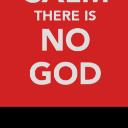Yahoo Answers is shutting down on May 4th, 2021 (Eastern Time) and beginning April 20th, 2021 (Eastern Time) the Yahoo Answers website will be in read-only mode. There will be no changes to other Yahoo properties or services, or your Yahoo account. You can find more information about the Yahoo Answers shutdown and how to download your data on this help page.
Trending News
What Does “The Eye Of The Needle” Actually Mean In Matthew 19:24,?
13 Answers
- Forrest ToneyLv 72 years ago
No rich or well off person can come into God's Kingdom as no camel can walk through the eye of a ( thread ) needle .
- Anonymous2 years ago
The eye of the needle is a gate in Jerusalem here is a picture of it for you you can see that it would be just a little bit difficult for a camel to squeeze through this gate it's possible but it would be rather difficult.

- 2 years ago
The parable of the labourers in the vineyard. (1-16) Jesus again foretells his sufferings. (17-19) The ambition of James and John. (20-28) Jesus gives sight to two blind men near Jericho. (29-34)1-16 The direct object of this parable seems to be, to show that though the Jews were first called into the vineyard, at length the gospel should be preached to the Gentiles, and they should be admitted to equal privileges and advantages with the Jews. The parable may also be applied more generally, and shows, 1. That God is debtor to no man. 2. That many who begin last, and promise little in religion, sometimes, by the blessing of God, arrive at a great deal of knowledge, grace, and usefulness. 3. That the recompense of reward will be given to the saints, but not according to the time of their conversion. It describes the state of the visible church, and explains the declaration that the last shall be first, and the first last, in its various references. Till we are hired into the service of God, we are standing all the day idle: a sinful state, though a state of drudgery to Satan, may be called a state of idleness. The market-place is the world, and from that we are called by the gospel. Come, come from this market-place. Work for God will not admit of trifling. A man may go idle to hell, but he that will go to heaven, must be diligent. The Roman penny was sevenpence halfpenny in our money, wages then enough for the day's support. This does not prove that the reward of our obedience to God is of works, or of debt; when we have done all, we are unprofitable servants; but it signifies that there is a reward set before us, yet let none, upon this presumption, put off repentance till they are old. Some were sent into the vineyard at the eleventh hour; but nobody had hired them before. The Gentiles came in at the eleventh hour; the gospel had not been before preached to them. Those that have had gospel offers made them at the third or sixth hour, and have refused them, will not have to say at the eleventh hour, as these had, No man has hired us. Therefore, not to discourage any, but to awaken all, be it remembered, that now is the accepted time. The riches of Divine grace are loudly murmured at, among proud Pharisees and nominal Christians. There is great proneness in us to think that we have too little, and others too much of the tokens of God's favour; and that we do too much, and others too little in the work of God. But if God gives grace to others, it is kindness to them, and no injustice to us. Carnal worldlings agree with God for their penny in this world; and choose their portion in this life. Obedient believers agree with God for their penny in the other world, and must remember they have so agreed. Didst not thou agree to take up with heaven as thy portion, thy all; wilt thou seek for happiness in the creature? God punishes none more than they deserve, and recompenses every service done for him; he therefore does no wrong to any, by showing extraordinary grace to some. See here the nature of envy. It is an evil eye, which is displeased at the good of others, and desires their hurt. It is a grief to ourselves, displeasing to God, and hurtful to our neighbours: it is a sin that has neither pleasure, profit, nor honour. Let us forego every proud claim, and seek for salvation as a free gift. Let us never envy or grudge, but rejoice and praise God for his mercy to others as well as to ourselves.17-19 Christ is more particular here in foretelling his sufferings than before. And here, as before, he adds the mention of his resurrection and his glory, to that of his death and sufferings, to encourage his disciples, and comfort them. A believing view of our once crucified and now glorified Redeemer, is good to humble a proud, self-justifying disposition. When we consider the need of the humiliation and sufferings of the Son of God, in order to the salvation of perishing sinners, surely we must be aware of the freeness and richness of Divine grace in our salvation.20-28 The sons of Zebedee abused what Christ said to comfort the disciples. Some cannot have comforts but they turn them to a wrong purpose. Pride is a sin that most easily besets us; it is sinful ambition to outdo others in pomp and grandeur. To put down the vanity and ambition of their request, Christ leads them to the thoughts of their sufferings. It is a bitter cup that is to be drunk of; a cup of trembling, but not the cup of the wicked. It is but a cup, it is but a draught, bitter perhaps, but soon emptied; it is a cup in the hand of a Father, Joh 18:11|. Baptism is an ordinance by which we are joined to the Lord in covenant and communion; and so is suffering for Christ, Eze 20:37; Isa 48:10|. Baptism is an outward and visible sign of an inward and spiritual grace; and so is suffering for Christ, for unto us it is given, Php 1:29|. But they knew not what Christ's cup was, nor what his baptism. Those are commonly most confident, who are least acquainted with the cross. Nothing makes more mischief among brethren, than desire of greatness. And we never find Christ's disciples quarrelling, but something of this was at the bottom of it. That man who labours most diligently, and suffers most patiently, seeking to do good to his brethren, and to promote the salvation of souls, most resembles Christ, and will be most honoured by him to all eternity. Our Lord speaks of his death in the terms applied to the sacrifices of old. It is a sacrifice for the sins of men, and is that true and substantial sacrifice, which those of the law faintly and imperfectly represented. It was a ransom for many, enough for all, working upon many; and, if for many, then the poor trembling soul may say, Why not for me?29-34 It is good for those under the same trial, or infirmity of body or mind, to join in prayer to God for relief, that they may quicken and encourage one another. There is mercy enough in Christ for all that ask. They were earnest in prayer. They cried out as men in earnest. Cold desires beg denials. They were humble in prayer, casting themselves upon, and referring themselves cheerfully to, the Mediator's mercy. They showed faith in prayer, by the title they gave to Christ. Surely it was by the Holy Ghost that they called Jesus, Lord. They persevered in prayer. When they were in pursuit of such mercy, it was no time for timidity or hesitation: they cried earnestly. Christ encouraged them. The wants and burdens of the body we are soon sensible of, and can readily relate. Oh that we did as feelingly complain of our spiritual maladies, especially our spiritual blindness! Many are spiritually blind, yet say they see. Jesus cured these blind men; and when they had received sight, they followed him. None follow Christ blindly. He first by his grace opens men's eyes, and so draws their hearts after him. These miracles are our call to Jesus; may we hear it, and make it our daily prayer to grow in grace and in the knowledge of the Lord and Saviour Jesus Christ.Matthew 20:16 So the last shall be first, and the first last: for many bee called, but fewe chosen.Matthew 7:13Enter ye in at the strait gate: for wide is the gate, and broad is the way, that leadeth to destruction, and many there be which go in thereat:
Matthew 7:14 Some have called the straight and narrow path, the straight and “difficult” path. Though in all honestly, the path of righteousness is not difficult. It may be difficult to those walking in the flesh and obeying the lusts thereof, but that is simply because the flesh is weak as said by our Lord Jesus in
- GmanLv 52 years ago
Luke 18:25 removes any uncertainty about Jesus’ words, for it quotes him as saying: “It is easier, in fact, for a camel to get through the eye of a sewing needle than for a rich man to get into the kingdom of God.”
Jesus meant a literal sewing needle and a real camel. He was using these to emphasize the impossibility of something. But did Jesus mean that no rich man could ever get into the Kingdom? No, for Jesus’ statement was not meant to be taken literally. He was using hyperbole to illustrate that just as a literal camel cannot go through the eye of an actual sewing needle, it is impossible for a rich man to enter into the Kingdom if he continues to cling to his riches and does not put Jehovah first in his life.
- How do you think about the answers? You can sign in to vote the answer.
- Mr. SmartypantsLv 72 years ago
Fundamentalist Christians insist that EVERY WORD of scripture is to be taken totally literally. But in this case they make an exception. I've been told by many Christians that the Eye of the Needle was a gate in the wall around Jerusalem. It was not meant for animals, just humans. So a camel couldn't get through it without unloading, leaving his burden behind. So Jesus didn't mean rich people coudln't go to heaven, only that they couldn't take all their wealth with them.
I see that as an inconsistency. Talking snakes, pillars of fire, a special one-time star in the sky to lead the Magi to Jesus--those are all literally true, but the eye of a needle, something that actually existed, is allegorical? Come on now.
Especially considering the context. The story is about a rich man who supposedly already followed the Commandments, loved God, etc. but couldn't leave his earthly goods to follow Jesus, not for salvation but for extra credit!
Jesus didn't respect wealth. He didn't like the way wealth and power were connected. He thought that if someone seems too comfortable in this world, it really means the world is comfortable in -him-. He believed wealth led people away from God. And that after the apocalypse the rich and poor would trade places. And he treated the rich and poor that way.
(I'm just giving you my own views here. I'm not an expert, not even a Christian.)
- Anonymous2 years ago
So, then, Jesus meant a literal sewing needle and a real camel. He was using these to emphasize the impossibility of something. But did Jesus mean that no rich man could ever get into the Kingdom? No, for Jesus’ statement was not meant to be taken literally. He was using hyperbole to illustrate that just as a literal camel cannot go through the eye of an actual sewing needle, it is impossible for a rich man to enter into the Kingdom if he continues to cling to his riches and does not put Jehovah first in his life.—Luke 13:24; 1 Timothy 6:17-19.
- 2 years ago
Through the eye of a needle is a reference to diarrhoea, so it will definitely be in the bible.
- ?Lv 72 years ago
"It is easier for a camel to go through the eye of a needle, than for a rich man to enter into the kingdom of God." (Matthew 19:24)
For the last two centuries it has been common teaching in Sunday School that there is a gate in Jerusalem called the eye of the needle through which a camel could not pass unless it stooped and first had all its baggage first removed. After dark, when the main gates were shut, travellers or merchants would have to use this smaller gate, through which the camel could only enter unencumbered and crawling on its knees! Great sermon material, with the parallels of coming to God on our knees without all our baggage. A lovely story and an excellent parable for preaching but unfortunately unfounded! From at least the 15th century, and possibly as early as the 9th but not earlier, this story has been put forth, however, there is no evidence for such a gate, nor record of reprimand of the architect who may have forgotten to make a gate big enough for the camel and rider to pass through unhindered.
- gillieLv 72 years ago
Christians made up a cutesy story about a gate into Jerusalem called the "eye of the needle" that a camel couldn't get through unless it shed its burden and got on its knees. Cute, huh?
Too bad archaeologists know that there was no such gate and the story was unknown before the middle ages.
- L. E. GantLv 72 years ago
It refers to a gate into Jerusalem. It was too small for a laden camel to get through.







